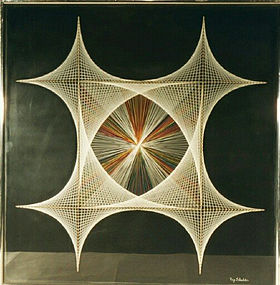
"The questions—why there is no poetic drama to-day, how the stage has lost all hold on literary art, why so many poetic plays are written which can only be read, and read, if at all, without pleasure—have become insipid, almost academic."
So wrote T. S. Eliot in "The Possibility of a Poetic Drama," published in The Sacred Wood (1922). Some fourscore years on, how has the situation of poetic drama changed?
Well, if there was no poetic drama then, I guess there's something like less than none now. You could argue that between then and now we've seen dramatists whose language has bent more toward the poetical--Beckett's monologues, the folk songs in Brecht, even the blank verse which lurks beneath much of Mamet's dialogue--but why are so few poets interested in writing--and not just writing but producing--plays in verse?
I'm sure some will argue that verse drama is very much alive, pointing to Glyn Maxwell, Verse Theater Manhattan, Christopher Logue, and other authors and organizations. All very true; I'm not saying the form is extinct. But even if we postulate for the sake of argument that there are dozens, if not hundreds of verse dramas being written this minute, I think we can still agree that verse drama is not well represented in print or on the stage. When did you last go to see a play? When did you last go to see a verse play? When did you last see a verse play by a living writer?
I've been thinking about this phenomenon a good deal for a number of reasons. First, I had a lot of trouble hammering out issues of point of view in the poems in my most recent book. Far too late into the development of the manuscript, I thought to myself, damn, this would have been much easier to do as a play. Second, the increasingly virtualized nature of our cultural discourse--by which I simply mean that I can sit here at this same screen and watch a movie, attend a photography exhibit, hear a concert, read a poem, chat on this blog, etc.--has led me to ponder theater's great anachronistic strangeness, namely, you have to be there. Third, I've always liked thinking about fallow or forgotten genres and media, like those things we made in junior high where you wrapped colored string around finishing nails tacked into plywood to learn about asymptotes. Fourth, sigh, you knew this was coming, I think I might be working on a verse play myself. Hoo. Ray. Kill me now.
Four possible reasons why you haven't been to see an original verse drama in as long as you can remember, if ever:
1. Because theater itself is a dying art, and verse drama is just one passenger on that sinking ship.
2. Movies. Duh.
3. Modernism. The concept of "verse drama" became antique when authors like Beckett began to write plays in prose that made meaning like a poem.
4. Thanks to advances in publishing technology and the internet, all of poetry's DIY energy is going into the creation of books, journals, and web sites, where it once might have gone into memorizing lines from your friend's verse play in order to mount a production of it in your back yard. No, really! Think about it! Well, maybe not. I'm just thinking out loud here, people!
Any other ideas? I'd be glad to hear them.
Born in Grand Rapids, Michigan, poet Joel Brouwer earned a BA from Sarah Lawrence College and an MA ...
Read Full Biography

